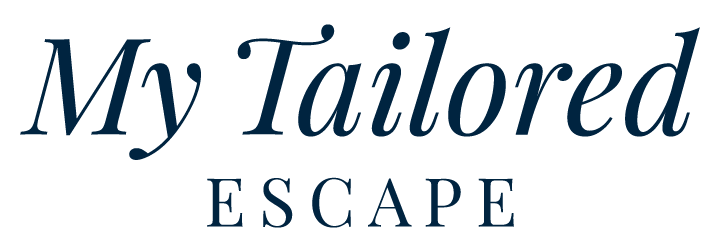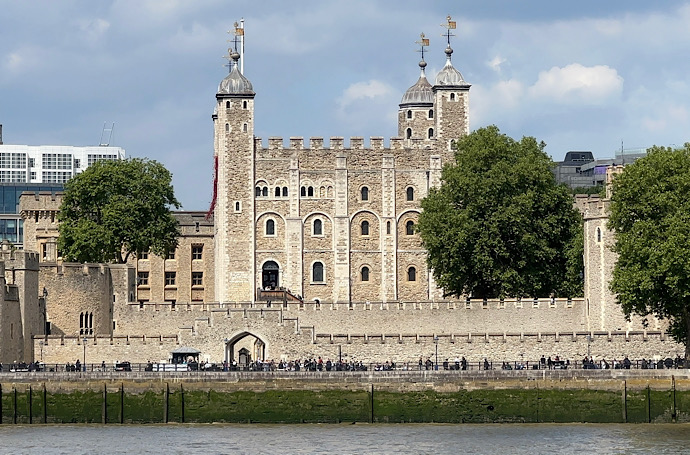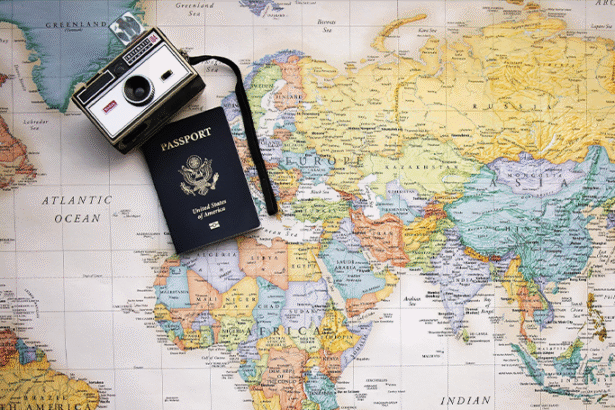It’s 11:47 PM and you’re still awake, laptop glowing in the dark bedroom while your partner sleeps beside you. You’ve been researching this trip for three weeks now, and somehow you feel less confident about your choices than when you started. The hotel you almost booked yesterday now has terrible recent reviews. The restaurant everyone raves about is booked solid. And you just discovered that the “must-see” museum you planned your entire itinerary around is closed for renovations during your visit.
Sound familiar? You’re experiencing the hidden costs of DIY travel planning—and they go far deeper than the dollars you think you’re saving.
The Myth of DIY Savings
We live in an age where information feels free and accessible. A few Google searches, some TripAdvisor scrolling, and a Pinterest board later, you feel equipped to plan your dream escape. After all, why pay someone else to do what you can do yourself?
This thinking makes perfect sense on the surface. You’re intelligent, resourceful, and capable of research. You’ve successfully navigated complex professional challenges—surely you can figure out a vacation.
But here’s what most people don’t calculate when they choose the DIY route: the true cost isn’t just about money. It’s about time, stress, opportunity, and ultimately, the quality of the experience you’re trying to create.
The Real Hidden Costs of Going It Alone
The Time Drain You Can’t Get Back
Let’s start with the most precious resource you have: time. The average person spends 40-60 hours planning a significant international trip. That’s more than a full work week dedicated to research, comparison shopping, and logistics coordination.
For business owners and entrepreneurs, this time cost becomes even more significant. Those 50 hours you spend researching hotels and restaurants? That’s time not spent developing your business, meeting with clients, or pursuing growth opportunities. If you bill at $200 per hour, you’ve just spent $10,000 worth of your time to save a planning fee that’s likely a fraction of that amount.
But it’s not just about billable hours—it’s about opportunity cost. The innovative idea that comes during focused work time. The client relationship that deepens through dedicated attention. The strategic planning session that gets postponed because you’re consumed with trip logistics. These missed opportunities don’t have clear price tags, but their value compounds over time.
And it’s not just the hours—it’s when those hours happen. Planning doesn’t confine itself to convenient times. It bleeds into evenings when you should be relaxing with family, weekends when you should be present with loved ones, and mental space during work days when you should be focused on what actually grows your income and impact.
You find yourself researching restaurants during client calls, comparing hotel options while supposedly watching a movie with your partner, and lying awake at night second-guessing decisions you made weeks ago. The trip that’s supposed to provide restoration is stealing your peace of mind—and your productivity—before you even leave.
The Paralysis of Infinite Choice
The internet promises unlimited options, but unlimited options create unlimited anxiety. Every restaurant has mixed reviews. Every hotel has both five-star and one-star ratings. Every neighborhood has advocates and detractors.
You start with enthusiasm but quickly find yourself drowning in conflicting information. The food blog that promised “authentic local experiences” leads you to tourist traps. The “insider’s guide” contradicts the “local’s secret list.” Each new article you read undermines confidence in decisions you’ve already made.
This isn’t just frustrating—it’s emotionally exhausting. You begin to question your judgment, second-guess your preferences, and worry that you’re making expensive mistakes. The decision fatigue becomes overwhelming, and what should be exciting anticipation transforms into chronic anxiety.
The Expertise Gap You Can’t Google
There’s a difference between information and insight. Search engines can tell you a restaurant’s hours and menu, but they can’t tell you that the acoustics make conversation impossible, or that the service becomes rushed after 8 PM, or that the Tuesday special is better than anything on the regular menu.
You can read that a hotel is “centrally located,” but you can’t easily discover that it’s on a street with construction noise starting at 6 AM, or that the “city view” actually overlooks a parking lot, or that the elevator breaks down regularly.
This expertise gap leads to what travel professionals call “good enough” syndrome. You settle for choices that seem reasonable but aren’t optimized for your specific needs and preferences. You end up with experiences that are fine instead of extraordinary—and you often don’t realize what you missed until it’s too late.
The Stress Tax on Your Relationships
DIY travel planning doesn’t happen in a vacuum. It affects everyone around you. Your partner starts to resent the constant planning discussions. Your family notices you’re distracted and anxious. Your friends get tired of hearing about your research struggles.
The irony is profound: the trip that’s supposed to strengthen relationships and provide quality time together begins to strain those very relationships before you even depart. Arguments emerge about priorities, budgets, and logistics. The planning process becomes a source of tension rather than excitement.
The Opportunity Cost of Settling
Perhaps the most painful hidden cost is what you don’t experience because you didn’t know it existed. The cooking class that books up months in advance. The local guide who provides cultural context that transforms ordinary sightseeing into profound understanding. The restaurant where the chef will create a custom menu if you know to ask.
These opportunities aren’t hidden because they’re secret—they’re hidden because accessing them requires relationships, timing knowledge, and cultural understanding that takes years to develop. When you DIY, you’re limited to what’s publicly available and easily bookable, which represents only a fraction of what’s actually possible.
The Financial False Economy
The belief that DIY planning saves money is often an illusion. Yes, you avoid paying a planning fee. But you also miss the savings that come from professional relationships and bulk purchasing power.
Travel advisors often secure better rates than what’s available to the public, receive complimentary upgrades and amenities, and have access to package deals that aren’t advertised. They know when to book for the best prices and can navigate the complex world of airline and hotel loyalty programs.
More importantly, they help you avoid expensive mistakes: the non-refundable hotel booking in a neighborhood that turns out to be inconvenient, the restaurant reservations at places that don’t match your preferences, the transportation choices that waste time and money.
The Emotional Toll You Don’t Calculate
The Confidence Erosion
Every conflicting review you read chips away at your confidence. Every change you make to your itinerary creates doubt about previous decisions. By the time you’re ready to travel, you’re not excited—you’re anxious about whether you’ve planned well enough.
This anxiety follows you on your trip. Instead of fully enjoying experiences, you’re constantly evaluating whether you made the right choices. You can’t be present because you’re mentally reviewing what you might have done differently.
The Perfectionist’s Nightmare
High achievers are particularly vulnerable to DIY planning stress because they approach travel planning with the same standards they bring to their professional work. But travel planning isn’t like other projects—there’s no clear definition of “complete” or “perfect,” and the variables are constantly changing.
You find yourself in an endless cycle of optimization, always wondering if there’s a better restaurant, a more convenient hotel, a more authentic experience. The planning never feels finished because there’s always one more review to read, one more option to consider.
The Responsibility Burden
When you plan everything yourself, you become responsible for everyone’s experience. If the hotel is disappointing, it’s your fault. If the restaurant is mediocre, you chose poorly. If the weather ruins outdoor plans and you don’t have alternatives, you should have planned better.
This responsibility weighs heavily, especially when you’re traveling with others. The pressure to ensure everyone has a perfect time becomes overwhelming, and any disappointment feels like personal failure.
When DIY Makes Sense (And When It Doesn’t)
DIY Can Work When:
- You genuinely enjoy the research and planning process
- You have ample time and mental bandwidth
- You’re traveling to familiar destinations or cultures
- Your trip is simple and straightforward
- You have extensive experience in the destination
- The planning process itself is part of the vacation experience for you
Consider Professional Help When:
- You value your time more than the cost of planning services
- You’re planning a significant or once-in-a-lifetime trip
- You’re traveling to unfamiliar cultures or destinations
- You want access to experiences beyond what’s publicly available
- You’re planning for multiple people with different preferences
- You’re dealing with complex logistics or special requirements
- The planning process is causing stress or relationship strain
- You want the peace of mind that comes with professional backup support
The True Value of Professional Planning
What You’re Really Paying For
When you work with a skilled travel advisor, you’re not paying someone to do basic internet research. You’re investing in:
Curation Over Information: Instead of wading through thousands of options, you receive a carefully selected few that match your specific preferences and needs.
Relationships Over Transactions: Access to exclusive experiences, room upgrades, restaurant reservations, and cultural connections that aren’t available through online booking.
Peace of Mind Over Anxiety: The confidence that comes from knowing a professional has anticipated potential issues and created contingency plans.
Optimization Over Adequacy: Experiences designed to flow seamlessly together, creating a cohesive journey rather than a collection of disconnected activities.
Support Over Abandonment: Real-time assistance when things don’t go according to plan, ensuring problems are solved quickly without disrupting your experience.
The ROI of Professional Planning
The return on investment from professional travel planning often exceeds the cost. Consider:
- Time saved: 40-60 hours returned to your life
- Stress reduced: Ability to anticipate your trip with excitement rather than anxiety
- Experience enhanced: Access to opportunities you wouldn’t discover independently
- Relationships protected: Planning discussions become collaborative rather than contentious
- Mistakes avoided: Professional foresight prevents costly errors and disappointments
Making the Right Choice for You
The decision between DIY and professional planning isn’t about right or wrong—it’s about honest self-assessment. Ask yourself:
- Do I genuinely enjoy travel research, or does it feel like another task on my to-do list?
- Am I planning this trip to save money, or to create an extraordinary experience?
- Do I have the time and energy to do this planning justice?
- Will the planning process enhance or detract from my anticipation?
- What would I do with the 50+ hours I’d spend planning if I had them back?
The Freedom to Choose Differently
Here’s what many successful people understand intuitively in business but sometimes forget when it comes to personal life: just because you can do something doesn’t mean you should. You wouldn’t perform your own surgery or represent yourself in court, not because you’re incapable of learning these skills, but because other professionals can deliver better outcomes with less risk and time investment.
Choosing professional help isn’t admitting defeat—it’s demonstrating the same strategic thinking that likely contributed to your success. You’ve learned to delegate in your professional life because you understand that your highest value comes from focusing on what only you can do. The same principle applies to travel planning.
The Art of Strategic Delegation
Smart business owners and executives understand this concept deeply: your time has different values depending on how you use it. An hour spent with your family is irreplaceable. An hour spent on high-level business strategy could generate significant returns. An hour spent researching whether Hotel A or Hotel B has better breakfast options? That’s an hour that could have been invested in something far more valuable to your life and goals.
People who consistently hire travel advisors aren’t lazy or incapable—they’re strategic. They recognize that their time is finite and irreplaceable. They understand that expertise exists for a reason, and that accessing it is often more efficient than developing it yourself for a one-time use.
The Compound Effect of Time Choices
Every hour you spend on trip planning is an hour not spent:
- Building deeper relationships with the people who matter most
- Developing the next phase of your business
- Pursuing personal interests that actually energize you
- Simply being present and enjoying your current life
- Resting and recharging so you can show up fully for what matters
The most successful people understand that time allocation is perhaps the most important skill they can master. They’ve learned to invest their personal time in experiences and relationships that compound in value, while delegating tasks that others can handle more efficiently.
Time is the one resource you truly can’t get back. Once spent, it’s gone forever. The question isn’t whether you’re capable of planning your own trip—it’s whether that’s the best use of the limited time you have on this earth.
Your Next Step
If you’ve been wrestling with planning a significant trip and feeling overwhelmed by the process, consider whether the hidden costs of DIY are worth the money you think you’re saving. Sometimes the most expensive choice is the one that appears cheapest upfront.
You deserve a travel experience that begins with excitement, not anxiety. You deserve to arrive at your destination confident in your choices rather than worried about your mistakes. Most importantly, you deserve to be fully present for the transformative experiences you’re seeking.
The question isn’t whether you’re capable of planning your own trip—it’s whether you want to.
Ready to explore what stress-free travel planning looks like? At My Tailored Escape, we understand that your most precious resource is time, and our expertise ensures every hour of your escape is optimized for restoration and joy. Let’s discuss how professional planning can transform your next journey.





